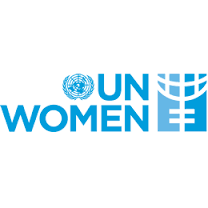This website uses cookies so that we can provide you with the best user experience possible. Cookie information is stored in your browser and performs functions such as recognising you when you return to our website and helping our team to understand which sections of the website you find most interesting and useful.

UN Women is the UN organization dedicated to gender equality and the empowerment of women. A global champion for women and girls, UN Women was established to accelerate progress on meeting their needs worldwide.
UN Women supports UN Member States as they set global standards for achieving gender equality, and works with governments and civil society to design laws, policies, programmes and services needed to implement these standards.
It stands behind women’s equal participation in all aspects of life, focusing on five priority areas: increasing women’s leadership and participation; ending violence against women; engaging women in all aspects of peace and security processes; enhancing women’s economic empowerment; and making gender equality central to national development planning and budgeting.
UN Women also coordinates and promotes the UN system’s work in advancing gender equality.
Aims of UN Women
- Increasing women’s leadership and participation;
- Ending violence against women and girls;
- Engaging women in all aspects of peace and security processes and humanitarian action;
- Enhancing women’s economic empowerment;
- Making gender equality central to national development planning and budgeting.
Candidates currently not working at the United Nations are strongly encouraged to apply for the roles below:
Why Goal 5 matters
The targets of proposed Goal 5, on achieving gender equality and empowering all women and girls, are measurable and attainable. This comprehensive goal includes nine targets that largely reflect UN Women’s proposals. Full implementation of this goal matters because it has the potential to transform unequal power relations between women and men and address structural barriers impeding progress.
These targets seek to:
- End all forms of discrimination against all women and girls everywhere. Laws and policies need to be urgently reviewed, amended or abolished as a first step towards achieving substantive gender equality, complemented by measures to change discriminatory social norms and practices.
- Eliminate all forms of violence against all women and girls in public and private spheres, including trafficking and sexual exploitation. This is also central to eradicating poverty and realizing sustainable development, peace and security, and human rights.
- Eliminate all harmful practices, such as child, early and forced marriage and female genital mutilations. This can be achieved through legal reforms, policies and protection measures, community mobilization and engagement of religious and community leaders, as well as those affected.
- Recognize and value unpaid care and domestic work through the provision of public services, infrastructure and social protection policies. Such work must be reduced and redistributed between households and the State (through the provision of services and infrastructure) and between women and men.
- Ensure women’s effective participation and equal opportunities for leadership at all levels of decision-making in political, economic and public life. For democratic accountability and legitimacy, women’s full involvement is key in implementing the new development agenda.
- Ensure universal access to sexual and reproductive health and reproductive rights. Women have the right to live free of discrimination and violence, and to control and decide freely on matters related to their sexuality, including sexual and reproductive health. For this, they need access to essential information, education and services.
- Undertake reforms to give women equal rights to economic resources, as well as access to ownership and control over land and other forms of property, financial services, inheritance and natural resources. This is essential for their economic security and status, for decent work, sustainable livelihoods and to ensure an adequate standard of living.
- Enhance the use of enabling technologies, in particular, information communication technologies (ICTs), to promote women’s empowerment. Access to quality infrastructure and technology is key to improving women’s formal employment and entrepreneurship opportunities and reducing unpaid care work.
- Adopt and strengthen policies and legislation for the promotion of gender equality and the empowerment of all women and girls at all levels. National legislation must guarantee equal rights, aligned with international standards.
All goals and targets outlined in the draft outcome document “Transforming Our World: the 2030 Agenda for Sustainable Development” will be formally adopted by world leaders at a United Nations Summit in New York from 25-27 September 2015.
Company Statistics
Date Established
Member States
Headquarters
Number of employees
